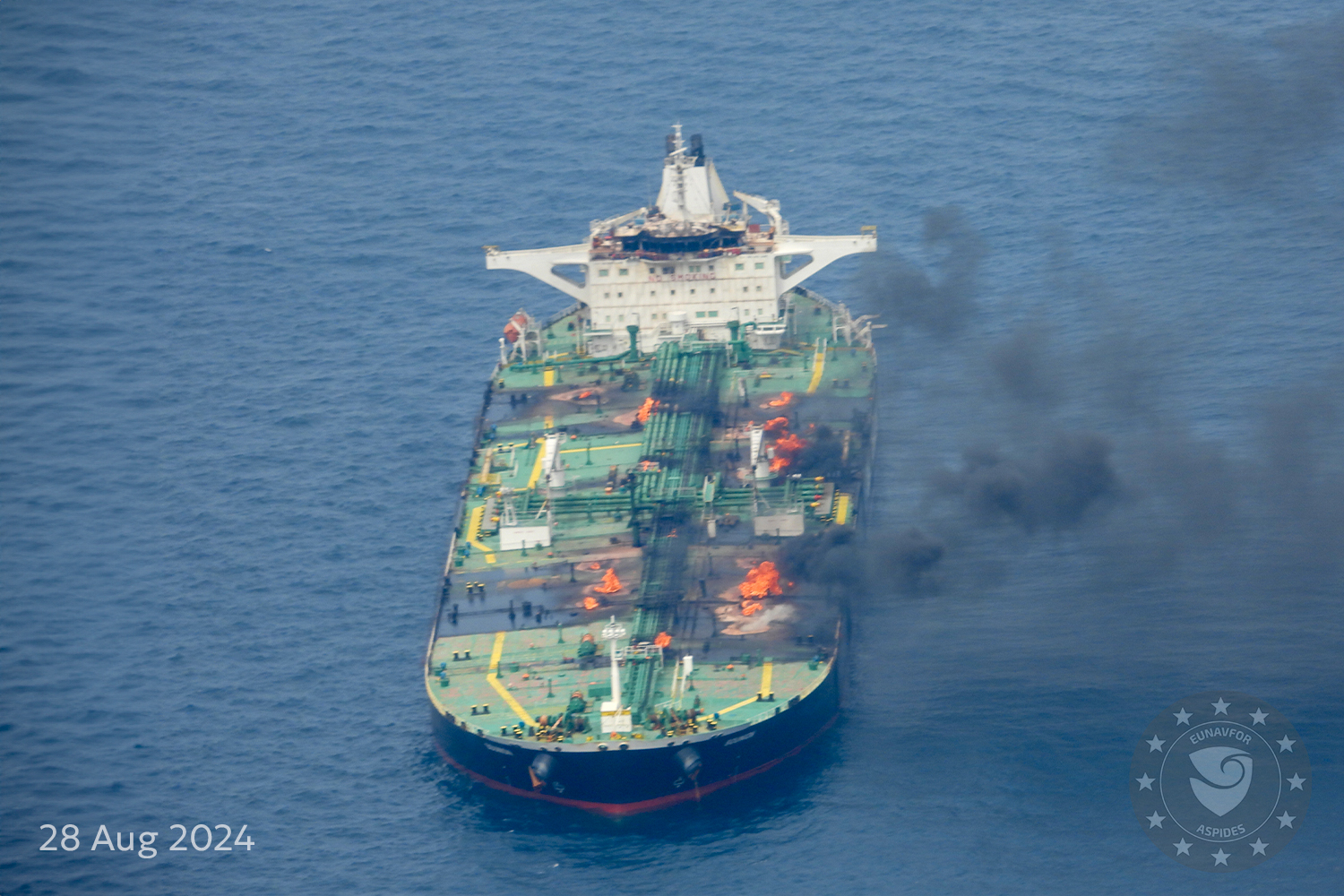خبراء يحذرون من "كارثة بيئية خطيرة" تهدد سواحل البحر الأحمر بسبب ناقلة النفط المشتعلة
سياسة | 10 سبتمبر, 2024 - 7:21 م

 مسئول أممي: نتابع الوضع عن كثب في عدن ومستمرون في اتخاذ التدابير لضمان سلامة موظفينا
مسئول أممي: نتابع الوضع عن كثب في عدن ومستمرون في اتخاذ التدابير لضمان سلامة موظفينا  ما مصير العلاقات الاقتصادية بين السعودية والإمارات؟ (تحليل)
ما مصير العلاقات الاقتصادية بين السعودية والإمارات؟ (تحليل)  قوات "درع الوطن" الحكومية تدخل العاصمة المؤقتة عدن
قوات "درع الوطن" الحكومية تدخل العاصمة المؤقتة عدن  أغلبهم طلاب.. وفاة وإصابة 12 شخصاً في حادثة سير مُروّعة بمدينة إب
أغلبهم طلاب.. وفاة وإصابة 12 شخصاً في حادثة سير مُروّعة بمدينة إب  خلاله لقائه بوفده في الرياض.. السفير السعودي: تحركات الانتقالي الأخيرة أساءت للقضية الجنوبية
خلاله لقائه بوفده في الرياض.. السفير السعودي: تحركات الانتقالي الأخيرة أساءت للقضية الجنوبية  واشنطن.. وزيرا خارجية أمريكا والسعودية يبحثان التنسيق المشترك لدعم الأمن والاستقرار في اليمن
واشنطن.. وزيرا خارجية أمريكا والسعودية يبحثان التنسيق المشترك لدعم الأمن والاستقرار في اليمن 
 مسئول أممي: نتابع الوضع عن كثب في عدن ومستمرون في اتخاذ التدابير لضمان سلامة موظفينا
مسئول أممي: نتابع الوضع عن كثب في عدن ومستمرون في اتخاذ التدابير لضمان سلامة موظفينا  ما مصير العلاقات الاقتصادية بين السعودية والإمارات؟ (تحليل)
ما مصير العلاقات الاقتصادية بين السعودية والإمارات؟ (تحليل)  قوات "درع الوطن" الحكومية تدخل العاصمة المؤقتة عدن
قوات "درع الوطن" الحكومية تدخل العاصمة المؤقتة عدن  أغلبهم طلاب.. وفاة وإصابة 12 شخصاً في حادثة سير مُروّعة بمدينة إب
أغلبهم طلاب.. وفاة وإصابة 12 شخصاً في حادثة سير مُروّعة بمدينة إب  خلاله لقائه بوفده في الرياض.. السفير السعودي: تحركات الانتقالي الأخيرة أساءت للقضية الجنوبية
خلاله لقائه بوفده في الرياض.. السفير السعودي: تحركات الانتقالي الأخيرة أساءت للقضية الجنوبية  واشنطن.. وزيرا خارجية أمريكا والسعودية يبحثان التنسيق المشترك لدعم الأمن والاستقرار في اليمن
واشنطن.. وزيرا خارجية أمريكا والسعودية يبحثان التنسيق المشترك لدعم الأمن والاستقرار في اليمن 
سياسة | 10 سبتمبر, 2024 - 7:21 م
